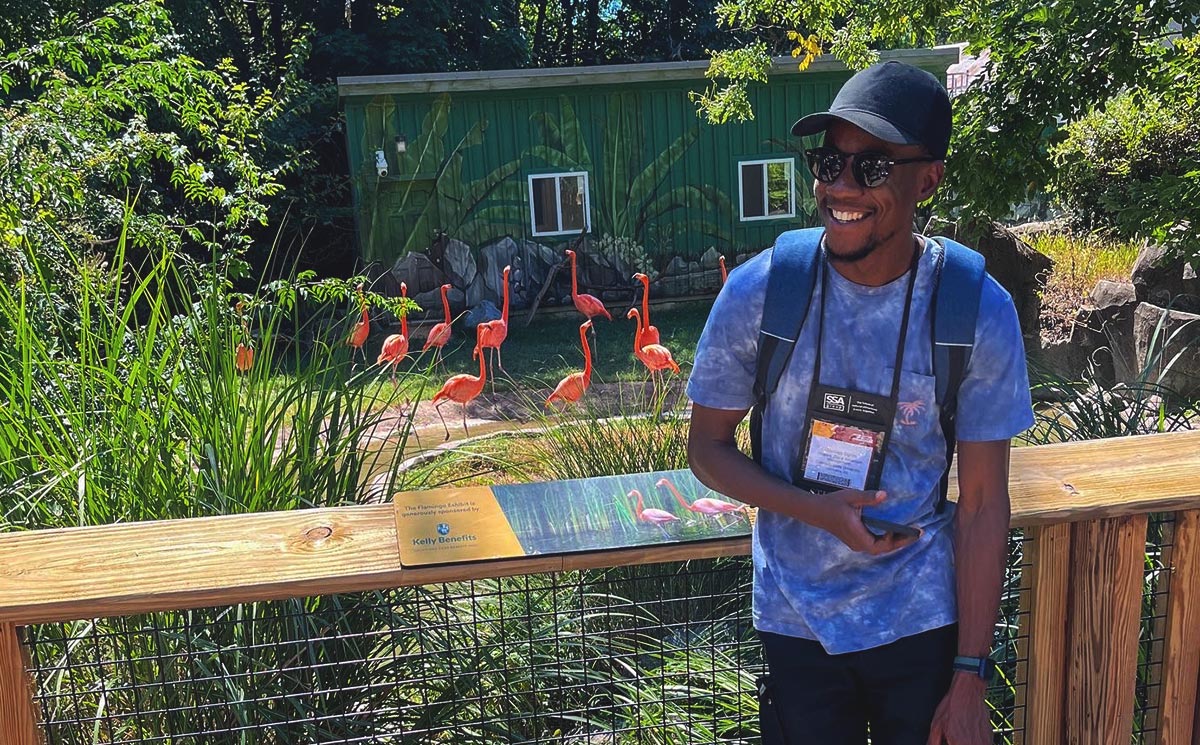


Select one of the options below:

Developed in cooperation with leaders of professional animal organizations that represent the leading edge of animal welfare and conservation, CSU’s online Professional Science Master's (P.S.M.) program with a specialization in Zoo, Aquarium, and Animal Shelter Management prepares students to:
Start building the advanced knowledge to guide the long-term success of zoos, aquariums, animal shelters, and similar organizations by studying the science of animal behavior; physiology, reproduction, and nutrition; fundamentals of leadership, management, and nonprofit business operations; and more.
After successful completion of this program, you will have the knowledge to:
CSU's P.S.M. program is accredited by the National Professional Science Master’s Association (NPSMA).
Professional Science Master’s (P.S.M.) degrees are developed in partnership between a college or university and industry partners, often to meet growing industry demand for advanced training in an emerging or evolving field. In addition to a multi-disciplinary curriculum, these programs typically include applied, real-world learning components, such as a professional internship or capstone project.
Graduates of this program will typically seek career advancement opportunities in zoo, aquarium, and shelter operations, nonprofit executive leadership positions, behavioral management positions, and more. Example job titles include:
**400 hours of project to be completed on site with your organization over the following 1.5 years
Contact your advisor for approved electives for the program.
Contact your advisor for approved electives for the program.
Program Total Credits: 43 - 45
Students may be admitted for the fall semester only.
| Fall semester | July 15 |
Start your application online and upload materials directly into the online system. You can save your progress and return any time.
Apply NowNote that meeting the minimum department standards does not ensure admission to the program. Admission to Colorado State University graduate programs is based on a number of factors, including prior academic and professional experience and the personal statement.
Applicants will be required to submit the following information.
Note: If you are selected as a candidate, the department may ask for an interview (either by phone or in person). The department is interested in students who can communicate their ideas with distinction and demonstrate a deep commitment to excellence.
Complete the online graduate application form and pay the nonrefundable application processing fee (payable online). As soon as you have completed the required information, please submit your application. Your application will not be reviewed until it is complete and all required materials have been received.
Request one official transcript of all collegiate work completed from all institutions attended. Transcripts from Colorado State University are not required. Transcripts must be received directly from the originating institution to be considered official.
Please Note: Students may be unconditionally admitted and registered in their first semester of courses with an unofficial transcript. Official transcripts must be submitted, prior to or during your first semester, before you can register for your second semester of graduate work. Failure to meet this condition will result in your dismissal from the Graduate School.
Electronic (preferred): Digital Transcripts must be submitted by the originating institution using a secure service such as parchment, eScrip-Safe, the National Student Clearinghouse, or e-Quals. Transcripts received via emails are considered unofficial. Use institution code 4075 for Colorado State University or gradadmissions@colostate.edu if the secure service requires an email address.
Mail (if necessary) Graduate Admissions Colorado State University – Office of Admissions 1062 Campus Delivery Fort Collins, CO 80523-1062
View your application status at any time to ensure your application checklist is complete or to check on updates.
Once your complete application, including supporting materials, is received, the department admission committee will review your application and notify you of their decision.
Proof of English language proficiency is required for applicants from countries or United States territories where there are official languages other than (or in addition to) English. This includes the U.S. territories of American Samoa, Guam, the Northern Mariana Islands, and Puerto Rico.